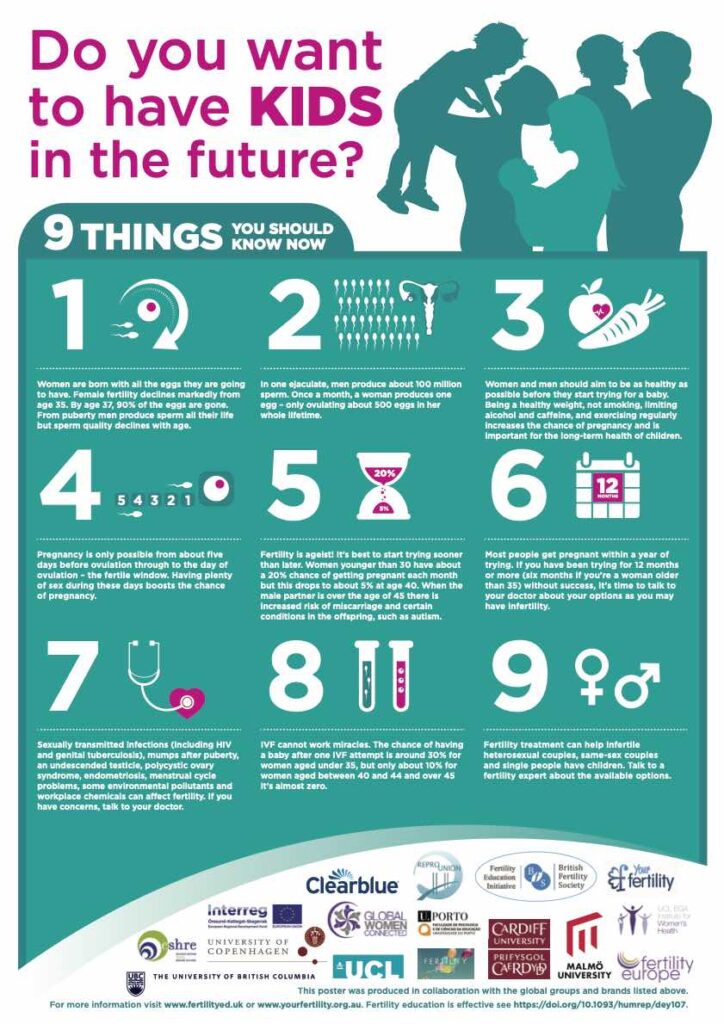Understanding Fertility: Insights and Advice for Prospective Parents
The Biological Clock is Ticking
Both men and women need to be aware of their reproductive health, but women, in particular, face a more pressing timeline. Women are born with a finite number of eggs, and this number drastically decreases as they age. By age 37, 90% of these eggs are gone. It’s a stark reminder that female fertility sharply declines after age 35.

The Male Factor
Men, on the other hand, produce sperm throughout their lives, starting from puberty. However, like women, the quality of sperm also diminishes with age. This can affect not just the chances of conceiving but also the health of the offspring. There is an increased risk of miscarriage and conditions like autism when the male partner is over 45 years old.
The Best Time to Try
Timing is crucial when it comes to conception. The “fertile window” spans approximately six days – five days before ovulation and the day of ovulation itself. Frequent intercourse during this period significantly increases the probability of pregnancy.
Lifestyle Matters
Preparing your body for pregnancy is just as important as timing. Maintaining a healthy weight, abstaining from smoking, moderating alcohol and caffeine intake, and regular exercise can all enhance fertility and benefit the long-term health of the children.
Fertility Challenges and Solutions
Despite the best efforts, some couples face challenges when trying to conceive. If a couple has not succeeded in becoming pregnant after one year of trying (or six months if the woman is over 35), it is advisable to consult a doctor. Conditions like sexually transmitted infections, polycystic ovary syndrome, and issues related to menstrual cycles can all impact fertility.The Role of IVF
In vitro fertilization (IVF) has been a beacon of hope for many, but it’s not a guaranteed solution. The success rate of IVF depends highly on the age of the woman being treated. Women under 35 have about a 30% chance of having a baby per IVF attempt, which drops significantly as they age.
Fertility is Inclusive
Today, fertility treatments are available to help a wide array of individuals and couples, including heterosexual couples, same-sex couples, and single individuals. These options ensure that many paths to parenthood are accessible, regardless of personal circumstances.
In Conclusion
Fertility is a complex, deeply personal issue that affects both genders. Understanding the factors that influence fertility and the treatments available can empower individuals and couples to make informed decisions about their reproductive lives. Whether it’s through natural conception or assisted reproductive technologies like IVF, the journey to parenthood is a profound one, filled with its challenges and joys.
For more detailed information and support, visiting reputable resources such as www.fertilityed.uk and www.yourfertility.org.au can provide guidance and help from experts in the field.
